Investigative article sheds light on tactics of US propaganda war
Updated: 2015-05-11 10:21
By Chen Weihua(China Daily USA)
|
||||||||
A front page story in the Sunday edition of The Washington Post details how the US government has been waging a propaganda war in its efforts to defeat and degrade the Islamic State.
The article, titled "US struggles to degrade terrorists via Twitter", mentions the Center for Strategic Counterterrorism Communications (CSCC), a special unit assembled at the State Department that has the support of President Barack Obama and assistance from the CIA.
The center was designed to function "like a war room in a political campaign - shake things up, attack ads, opposition research", the Post quotes Alberto Fernandez, a veteran US diplomat who was in charge of the operation, as saying.
The report also described another new entity launched by the State Department called the Information Coordination Cell, which plans to enlist US embassies, military leaders and regional allies in a global messaging campaign to discredit groups such as the Islamic State.
The budget for CSCC, around $5 million to $6 million a year, is much smaller than the $150 million spent by the Pentagon to sway public opinion.
To make the propaganda war more effective, Richard Stengel, a former managing editor at the Time magazine who resigned in September 2013 to become the Under Secretary of State for Public Diplomacy and Public Affairs, reached out to Hollywood late last year to ask for help in countering the messages of both the Islamic State and Russia, according to the report.
The report by the Post's Greg Miller and Scott Higham, said the State Department appears to be revisiting some pages of the George W. Bush administration's propaganda playbook.
While the Post article did not mention China, it has shed light on long-held concerns among some Chinese that the US government has been engaging in a propaganda war to defame China. Such concerns now no longer look like paranoia, as some have suggested.
Edward Snowden's revelations have proved that the US government - or the National Security Agency, to be more specific - has been by far the largest Internet hacker in this world. But the US government's strategy over the past few years has been to deflect attention and instead accuse China of being the villain that threatens cyber security.
Exaggerating the China threat seems to be the key message in the US' propaganda war against China. People from Obama to senior US officials have constantly described China as the troublemaker in the East and South China Seas and a threat and bully to its neighbors.
China has been described as aggressive and sometimes compared to the Germany of the 1930s, despite the fact that China has played an enormous role in boosting the region's economic prosperity and has not engaged in wars with anyone for decades, except for a brief border war with Vietnam that last three weeks and six days in 1979.
In contrast, the US has been entangled in endless wars as witnessed in the decade-long wars in Iraq and Afghanistan. Its military actions in Libya, Syria and other Middle East countries have turned the region into the most chaotic corner of the planet.
Even in its latest effort to block the Asia Infrastructure Investment Bank (AIIB), the US government has tried to portray a China that is trying to play a responsible role as problematic in transparency and governance.
In retrospect, US propaganda regarding China is nothing new. Gwen Sharp, an associate professor of sociology at Nevada State College, wrote in an article entitled the "Yellow Peril" that it was anti-Chinese propaganda that led to the Chinese Exclusion Act of 1882.
During WWII, US propaganda made a U-turn, describing the Chinese as a great people compared to the aggressive Japanese, referred to back then as "Japs" in US propaganda.
"How to Tell Japs from the Chinese", a Life Magazine article blared on Dec 22, 1941, showing how US news media outlets joined the US government in the propaganda war, something that appears to be still true today.
Contact the writer at chenweihua@chinadailyusa.com.

 Chinese buyers spend $116m at art auction in NY
Chinese buyers spend $116m at art auction in NY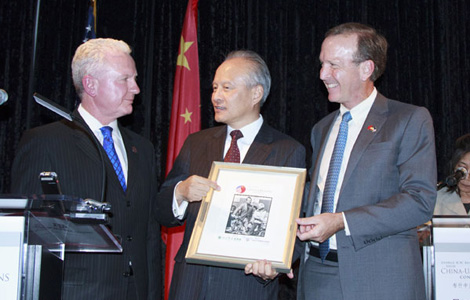
 Portrait of a health conference
Portrait of a health conference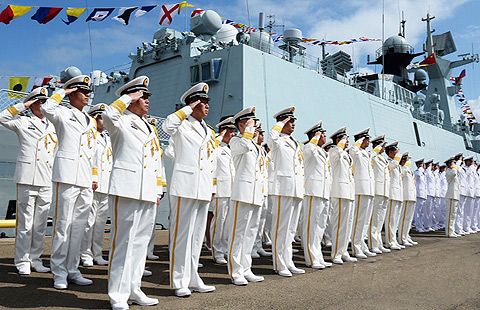
 China and Russia hold naval exercise
China and Russia hold naval exercise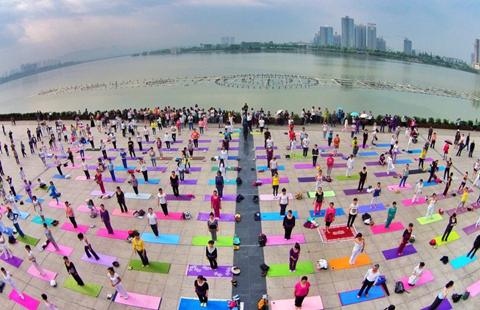
 Ten photos you don't wanna miss - May 12
Ten photos you don't wanna miss - May 12
 Students demonstrate new official anti-smoking gestures
Students demonstrate new official anti-smoking gestures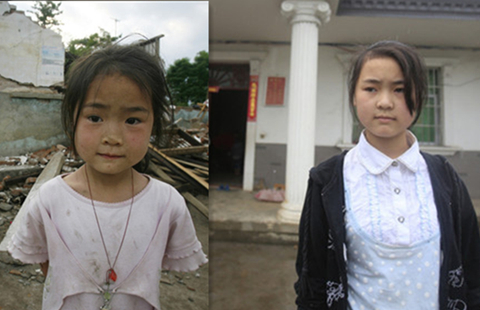
 Wenchuan earthquake: Seven years on
Wenchuan earthquake: Seven years on
 Ten photos you don't wanna miss - May 11
Ten photos you don't wanna miss - May 11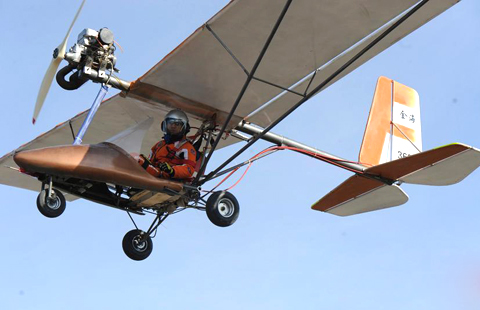
 Man successfully flies homemade plane
Man successfully flies homemade plane
Most Viewed
Editor's Picks

|

|

|

|

|

|
Today's Top News
Kerry off to China ahead of key talks
Beverage battle in China goes beyond colas
Volvo picks South Carolina for plant
Anti-graft body stresses inspections at lower levels
Ex-official on 'most wanted' list is arrested
China, Belarus to boost relations at local level
French president calls for end to US embargo on Cuba
Cook says Apple in talks with Alibaba over Apple Pay in China
US Weekly

|

|






